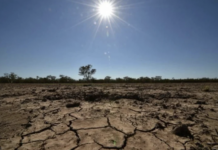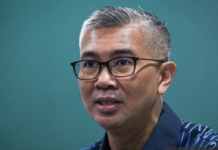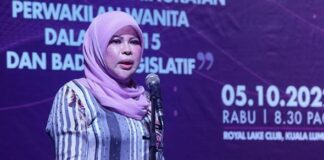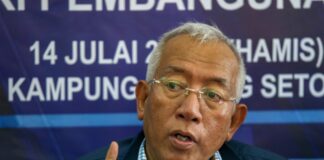KUCHING, Aug 15 — Sarawak Timber Industry Development Corporation (STIDC) will need to collaborate with three other state agencies in order to meet the global requirements in the production of wood products from renewable source.
Sarawak Premier Tan Sri Abang Johari Tun Openg said the combination of expertise possessed by STIDC, together with the Land and Survey, Agriculture, and Forestry Departments would enable the state to achieve the current and future global standards.
“I think these are the four (agencies) that must work together…cannot work in isolation, cannot work in silos,” he said in his speech at the STIDC Golden Jubilee celebration dinner here Monday night.
While purchasing countries have to fulfil the Environmental, Social and Governance (ESG) conditions set by their financiers, he said Sarawak being the supplier would need to do its part to ensure these conditions are met.
“Today, people (buyers) want us to plant trees to ensure our condition to remain green and we become one of the contributors towards a green economy. Because of that, we have to change, adjust to the demand and situation faced by the world,” he said.
Abang Johari said, although Sarawak is committed to planting 35 million trees by 2025 to meet the global greening programme while keeping its natural forests untouched, certain areas need to be allocated for planted forests to produce feedstocks for the downstream timber activities.
He said more countries who are buyers of Sarawak timber and wood products have subscribed to the ESG requirements, and this has resulted in changes to the value chain that also affect the supplying countries.
This is reason for the state government to encourage timber industry players in Sarawak to engage in planted forest trees, particularly fast-growing species, that could be turned into renewable source for wood products, he shared.
“No longer like before, just cut the trees (without being replanted), but now we must have a very structured approach in our timber industry. If we can have this renewable feedstock from planted forests, then our industry will be sustainable,” he added.



















